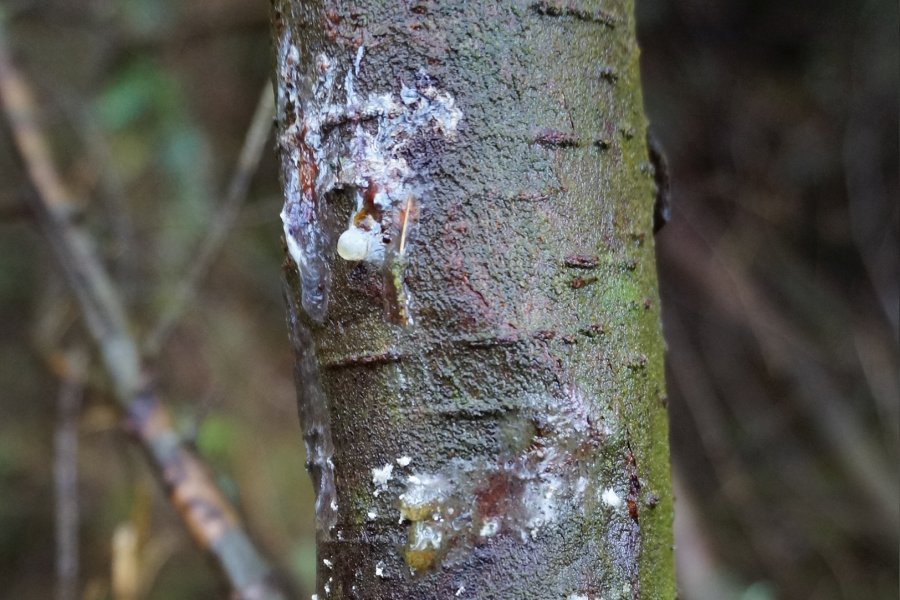
Farmers and landowners who own woodland are being told to remain vigilant following further findings of a devastating tree pathogen.
Extensions to the existing demarcated areas in Devon and Cornwall have been made following further identifications of Phytophthora pluvialis in these areas.
The fungus-like pathogen is known to affect a variety of tree species, including western hemlock, Douglas fir, tanoak and several pine species, in particular radiata pine.
It is reported to cause needle cast - where needles turn brown and fall off - shoot dieback, and lesions on the stem, branches, and roots.
Investigations are ongoing into the first reported cases of the pathogen in woodlands in Surrey and, following further findings in Wales, a new demarcated area has been introduced in Herefordshire to combat any potential spread.
The introduction and extensions of demarcated areas help to prevent the accidental movement of tree pathogens.
Additional restrictions requiring pre-notification of felling of susceptible material within demarcated areas were introduced in December 2021 and continue to apply to all demarcated areas.
The UK Chief Plant Health Officer confirmed the new findings following extensive surveillance activities by the Forestry Commission and other parts of the UK Plant Health Service.
The pathogen has been detected on mature western hemlock and Douglas-fir trees at the affected sites, and has been confirmed as the direct cause of the observed symptoms.
Forestry Commission, Forest Research and the Animal and Plant Health Agency (APHA) said they were conducting further surveillance and diagnostic analysis to understand more about the pathogen.
This includes extensive ground and aerial surveillance as part of a UK-wide survey, and research to explore factors such as climatic and potential species susceptibility.
Nicola Spence, the UK’s Chief Plant Health Officer, urged all sectors to support efforts to tackle this pathogen by checking the health of western hemlock and Douglas-fir trees.
“We are taking robust and swift action against the findings of Phytophthora pluvialis at these sites, as part of our well-established biosecurity protocol for tree pests and diseases.
"Key symptoms to look out for are lesions on the stem, branch or roots. Any sightings should be reported to the Forestry Commission via its TreeAlert online portal.”
Farmers, land managers and landowners are being asked to report any suspect trees via TreeAlert.
